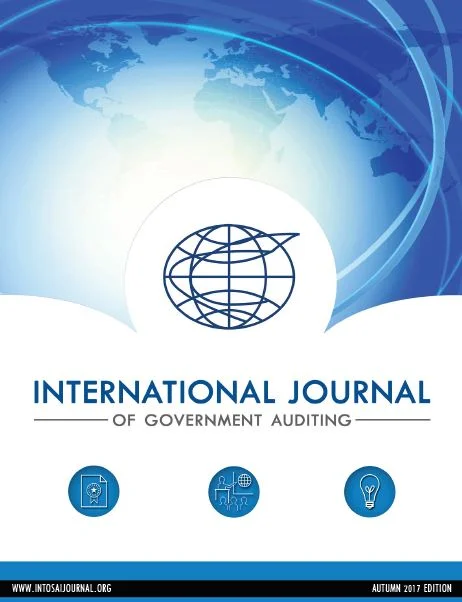by Keisuke Kato
Deputy Director, Office of International Affairs
Board of Audit, Japan
When conducting international capacity development programs, we need to consider how to overcome differences in systems, languages and cultures between the participating countries. If I were in charge of such international programs, I would attach importance to the following principles:
When introducing a SAI’s audit methodology/case to the participants, it should be introduced objectively as an example. It should not be introduced as being better than any other SAI’s audit methodology/case. Also, we should not force the participating SAIs to adopt it.
Each country has its own distinctive system, which has been created through a unique process based on its unique historical background. We should respect each other’s systems and not see subjectively that the country A’s system is better than the country B’s system. For example, SAI Japan conducts a seminar where we simply introduce SAI Japan’s experience and methodology on public construction works audit, not intending to demand the participating SAIs to adopt our audit methodology. We fully understand that our audit methodology has been created under Japan’s unique environment, under which natural disasters such as earthquakes, typhoons etc. occur frequently, thus our public construction works system has been developed so that our infrastructure should withstand against such natural disasters. Our audit methodology would not work without Japan’s public construction works system. Thus, seminar participants would not understand our audit methodology/case correctly without understanding Japan’s unique environment. For these reasons, we explain Japan’s unique environment, our unique public construction works system and our unique history that have developed our audit methodology. Our seminar’s main purpose is to make the participants fully understand our public construction works audits. It depends entirely on the participants whether they would like to adopt our audit methodology or not. We do not force them to do so.
When conducting international seminars, our main focus is on how to provide a platform for the participants, where they all can understand other SAI’s experiences. In order to achieve this goal, we try to provide an environment in which all participants can join the discussion.
As SAI Japan is in charge of ASOSAI’s capacity development activities, I have had the opportunity to plan and organize knowledge sharing seminars for ASOSAI’s members. In this role I soon realized that the systems of ASOSAI’s members are very different from each other. For example, if the theme of a seminar is performance audit, the gap between each SAI’s experiences on performance audit is so big that it seems meaningless to discuss it with each other. Some SAIs may have experience from performance audit since over 20 years, while some SAIs have just introduced it, or other SAIs have not introduced it yet. Despite such huge differences, however, it is meaningful to discuss the same topic among the member SAIs. You will find out some SAIs may benefit from your SAI’s experience, while your SAI may also benefit from other SAIs’ experience in spite of huge differences.
To understand other SAIs’ situations, organizers need to create an environment where each participant can talk freely about his/her SAI’s system and audit situation, while other participants listen. In this regard, I would like to mention failures that I experienced in a seminar some years ago. In that seminar, since there were only about ten participants, I set a discussion session among all the participants in order to collect their thoughts and views and then finalize the seminar. At that instance, my colleague from another SAI who was invited to attend the seminar as instructor, gave me the following advice: “- The next time, you could divide the participants into small groups, ideally, each of which consists of only 3-4 people. It is better to discuss in the small group first, and then make all the participants gather in a discussion where the leader of each group presents his/her group’s comments/thoughts to all the participants.” Since then, I always make it a habit to introduce a small group work session, followed by a discussion by all the participants together. I have found that, if the discussion is done with many people from the start, only some people present their views while people who are shy or are non-native English speakers tend to be quiet, left without an opportunity to make their views heard. In recent seminars, I have been happy to find that participants who are shy or are non-native English speakers do present their views well in the small groups.
As I am also a non-native English speaker, I understand fully how difficult it can be to keep up with the discussion in international seminars where English is the official language. Therefore, when we are in charge of international programs, we make it a habit to provide sufficient preparatory time to the participants and give them the seminar’s documents well before the seminar starts. If we did not do that, the participants from non-English speaking countries would not be able to participate fully in the seminar because they would not be able to understand its contents, not being able to prepare before the seminar. If they were given the chance to read the documents well before the seminar, they would understand its contents.
Having experiences from attending both international capacity development programs and international organization’s meetings such as ASOSAI/INTOSAI Governing Board meetings, I have found that the key factor for the success of these events is the same. It is to create an environment where all members feel that they are provided equal opportunities, that they can express their views freely and that their opinions are treated as important input. This way the efforts made in both capacity development activities and international organization’s meetings would reach further and make a difference to many more SAIs.
















